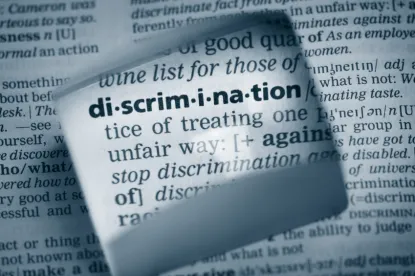In an en banc decision in Zarda v. Altitude Express, Inc., the Second Circuit has become the latest federal appeals court to hold that discrimination on the basis of sexual orientation is prohibited sex discrimination under Title VII of the Civil Rights Act of 1964 (“Title VII”).
Background
The case involved Donald Zarda, a gay male skydiving instructor who brought a sex discrimination claim under Title VII after he was terminated from his job at Altitude Express. Zarda alleged that his termination was based on his failure to conform to male sex stereotypes because he had made reference to his sexual orientation to female clients, which he stated was done in an effort to assuage concerns they might have about being strapped to a man for a tandem skydive.
The District Court for the Eastern District of New York dismissed Zarda’s claim, relying on Second Circuit precedent in Simonton v. Runyon, 232 F.3d 33 (2d Cir. 2000) and Dawson v. Bumble & Bumble, 398 F.3d 211 (2d Cir. 2005), holding that discrimination claims based on sexual orientation are not recognized under Title VII. On appeal, a Second Circuit panel of three judges affirmed the district court decision and declined Zarda’s request to overturn Simonton and Dawson because a three-judge panel “lacks the power to overturn Circuit precedent.” Shortly thereafter, the court agreed to rehear the matter en banc—meaning that all of the judges sitting on the Second Circuit would decide the appeal.
Second Circuit’s Analysis
In its analysis of whether Title VII prohibits discrimination based on sexual orientation, the court focused on the statute’s prohibition of discrimination “because of . . . sex” and stated that “the critical inquiry for a court assessing whether an employment practice is ‘because of . . . sex’ is whether sex was ‘a motivating factor.’”
The court found that “the most natural reading of the statute’s prohibition on discrimination ‘because of . . . sex’ is that it extends to sexual orientation discrimination because sex is necessarily a factor in sexual orientation.” In that regard, the court observed that sexual orientation refers to a person’s predisposition or inclination toward sexual activity or behavior with other males or females, such that “one cannot fully define a person’s sexual orientation without identifying his or her sex.”
Relying on the “comparative” test established by the Supreme Court in L.A. Department of Water & Power v. Manhart, 435 U.S. 702 (1987), the court noted that if, for example, a lesbian employee is denied a promotion because she has romantic or sexual relationships with women, the decision would necessarily be “because of” the employee’s sex if a similar decision would not have been made where the employee was a male.
The court also found support in the notion that sex stereotyping is prohibited under Title VII and that “sexual orientation discrimination is predicated on assumptions about how persons of a certain sex can or should be, which is an impermissible basis for adverse employment actions.” The court concluded that “when, for example, an employer acts on the basis of a belief that men cannot be attracted to men, or that they must not be, but takes no such action against women who are attracted to men, the employer has acted on the basis of [sex].” (Internal quotations and citation omitted).
In a series of dissenting opinions, Circuit Judges Gerard Lynch, Debra Ann Livingston, and Reena Raggi argued that, while the ultimate outcome of the majority decision is admirable, both the language of Title VII as well as its legislative history do not support a finding that sexual orientation-based claims constitute sex discrimination under the law.
The Circuit Split Grows
Two other circuit courts have recently decided this issue and have come out on opposite sides of the debate: a divided panel of the Eleventh Circuit declined to recognize a sexual orientation discrimination claim under Title VII in Evans v. Georgia Regional Hospital, 850 F.3d 1248 (11th Cir.), cert. denied, 138 S. Ct. 557 (2017); while the Seventh Circuit, sitting en banc in Hively v. Ivy Tech Community College, 853 F.3d 339 (7th Cir. 2017), was the first federal appeals court to hold that “discrimination on the basis of sexual orientation is a form of sex discrimination.”
As noted above, the U.S. Supreme Court in 2017 denied certiorari in Evans, thus declining, at least at the time, to take up the issue of sexual orientation discrimination under Title VII. However, as the circuit split continues to grow, the question of whether sexual orientation discrimination claims are cognizable may wind its way back before the Supreme Court again in the future. Until such time, the issue is one that will be decided based on the jurisdiction in which the parties find themselves, bearing in mind that many state and local laws already expressly prohibit discrimination on the basis of sexual orientation.




 />i
/>i
